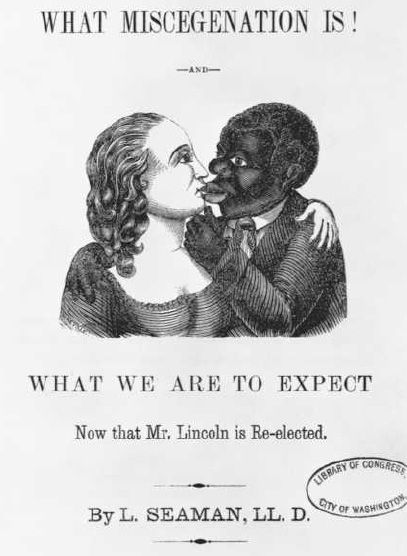Shakespeare commentary! Hell, I can do what I want. Let's talk Othello, and his place in the modern culture as allegory for modern minority success

The high achieving immigrant, a black man in a white world, Othello, presents us as an audience with numerous intertwined dualities, described particularly in his ending monologue. In his opening (of this ending) he seems very concerned with telling those around to remember the events and his person without detailing out the story in hateful or admiring ways. He doesn’t want to be distorted from his flawed humanity, and he takes pains to say so.
"Then must you speak
Of one that loved not wisely but too well,
Of one not easily jealous but, being wrought,
Perplexed in the extreme; of one whose hand,
Like the base Indian, threw a pearl away
Richer than all his tribe; of one whose subdued eyes,
Albeit unused to the melting mood,
Drop tears as fast as the Arabian trees
Their medicinable gum. Set you down this,
And say besides that in Aleppo once,
Where a malignant and a turbaned Turk
Beat a Venetian and traduced the state,
I took by th’ throat the circumcised dog
And smote him thus. (V.ii.341-354)"
He tells them that he loved much but unwisely, who "tossed away" something he couldn't understand, and who when the time had come protected his adopted country with his life. If one can excavate and examine these numerous dualities, particularly as pertaining to Othello’s racial nature as immigrant outsider and defender of Venice, then perhaps the general spirit of the analogy can be established.
The very basis of the play is advantages taken on the grounds of Othello’s duality and racial status, which after a while is what leads to his psychological ability to kill Desdemona, with prodding from Iago’s insinuations. Iago, through Othello’s insecurities, builds Othello’s open and honest nature into a paradoxical hypocrisy, building Othello’s bluntness and simplicity into an environment of interconnected, complex problems. Such is the plot, whereby through isolation and blindness “noble” Othello and his surroundings are swept up in the wake of his being taken advantage of (an allegory we can apply on a broad level with racial problems throughout history…even with racial commentaries by certain hip hop artists).

To back up a bit, there’s a very important thing to note when approaching Othello as a racialized figure. He is not just an outsider in Venetian society– worse, he is treated like one. In fact, you don’t hear his name spoken until the third scene of the first act, whereas every mention before such is a racial epithet. “The Moor” countless time by countless characters, and by Iago, “barbary horse”(I.i.113), “thick lips”(I.i.66), “old black ram”(I.i.88) (an insinuation of his demonic nature, who is also “tupping the white ewe”(I.i.88)), an accusation of "miscegenation".

http://www.msnbc.com/msnbc/old-navy-interracial-ad-resurrects-heated-debate
Ew. To begin the play, Iago uses this language speaking with Roderigo and Brabantio to dehumanize their enemy, and this has the desired effect. Brabantio does not approve of the perceived “bestiality” of his daughter’s new marriage, and he makes this known. This begins to have an effect on Othello, one you can see as he later says something along the lines of, “she was white and fresh as Diana, but now she’s as tainted as my black face” (III.iii.441-443). Othello himself is internalizing the view of himself expressed by those other Venetians, particularly Iago and Brabantio. More selfishly, he feels displaced in a society where he has found achievement, as his marriage to Desdemona legitimized him as an outsider.
This is where Othello’s duality begins, and it is completed in how he has viewed himself since the beginning of the play. We see he is a high achieving military officer with status and what could be considered a stabilizer to his position on the Venetian inside– interracial marriage. Othello is a perfectionist, and would have to be in order to come into his position in the first place. He’s broad, honest, open, and yet still high-achieving. He does everything he can to be accepted, including marrying a Venetian who accepts him “blindly” (as in color-blindly). As such, even though he loves his wife, he associates her with his position, and a qualifier for his “accepted” identity.
In acknowledging this, it’s easier to see why Othello can be manipulated into such self-absorption when he isn't at first presented as the type to wring hands. He begins to obsess over his shakier and shakier position, as if his position and very success is leaving him for another man. With Desdemona’s implied unfaithfulness, the self-discipline that got him where he is kicks in to split and divide Othello against himself.
This, unfortunately, is not relieved for the remainder of the play. Even after Othello is dying, he uses a racial epithet to describe his mistakes, as he refers to himself as a “base indian” (V.ii.365), and after his death Montano, Graziano, Lodovico, Cassio continue to refer to him as “The Moor”, implying that they will never tell Othello’s story in a humanizing way even as this is his dying wish.
Blindness itself is given a duality, in Desdemona and Othello and to those who systematically reject Othello’s attempts at assimilation. It’s dramatic irony that this same blindness is displayed so openly, blindness that allows Desdemona to truly love and accept Othello, the blindness that allows Othello to reject Desdemona (and by proxy, himself), and the blindness for those around to observe all this and turn a blind eye to their complicit responsibility, and their responsibility to tell Othello’s story right, as one of a human. Luckily, Shakespeare does enough of this for us.
Infuriatingly enough, Iago has his day. And why? Probably because of the same bigotry that kills Othello in the end. We see that Iago, in the first scene, proclaims to hate Othello, but gives a shaky reason at best for ruining Othello’s entire life. More likely, in an implication taken by how Iago refers to Othello, and how all too easily he takes advantage of other people’s racial insecurities, Iago resents Othello as an outsider who still has control over his career.
Yes, Othello passed him up for promotion, but what really pisses Iago off is that someone he calls the “old black ram” can do that to him in the first place…which ironically, is quite reminiscent of how strong of a reaction Othello has to Desdemona’s assumed threatening his position. He all too easily takes the bait, trusting Iago’s words over the character of his own wife, because even as he is dehumanized he takes the chance to objectify another.
Iago, in this sense, is the Shakespearian equivalent of a societal tendency to both reject and cast out outsider attempts at assimilation, and he further represents the white fear of having their promotions or college acceptances taken by affirmative action.
Thus, Othello’s true dualities are revealed. He’s open and honest and achieving, but he’ll only ever be an outsider. He’s defended Venice from Turks and other invaders, and yet he’s perceived as the ultimate threat. He is an immigrant, and unfortunately for 16th century Venice, black immigrants like Othello will not be able to positively embrace their environmental and personal dualities, and contribute something greater to their society.
While the Venetian allegory doesn't quite account for certain color barrier realities in today's America, it's interesting to consider when looking the environmental and personal dualities existing in minority cultures, and how obstacles to accepting said dualities can be challenged.
It's also important for observing our own fears towards perceived "outsiders", and what lengths we are willing to go to dehumanize or trivialize their existences. Othello won't be properly honored by Montano, Graziano, Lodovico, and Cassio, who still see it fit to refer to him by epithet, and how we tell the tales of those different from us should be closely monitored for similar dynamics.
Congratulations @bodhisattva! You have received a personal award!
Click on the badge to view your own Board of Honor on SteemitBoard.
Downvoting a post can decrease pending rewards and make it less visible. Common reasons:
Submit
Congratulations @bodhisattva! You received a personal award!
You can view your badges on your Steem Board and compare to others on the Steem Ranking
Vote for @Steemitboard as a witness to get one more award and increased upvotes!
Downvoting a post can decrease pending rewards and make it less visible. Common reasons:
Submit